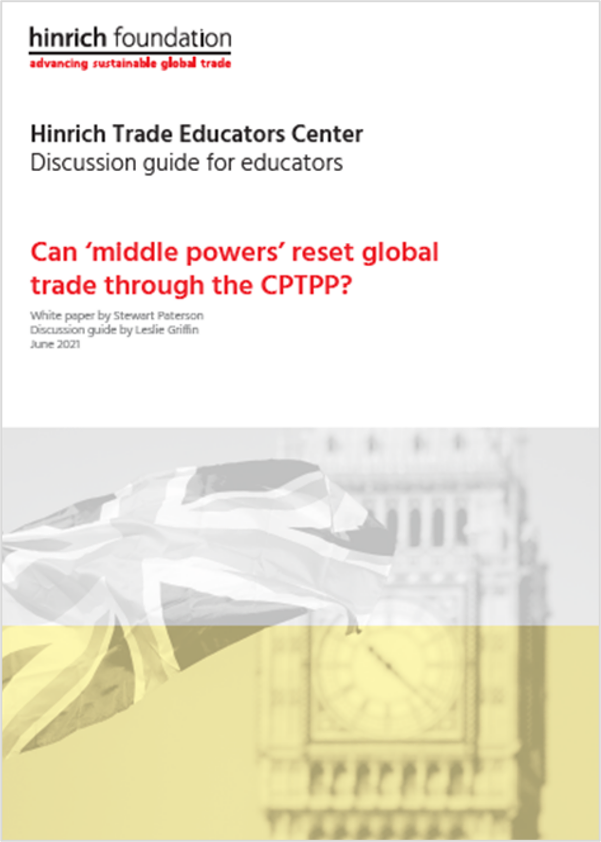Free trade agreements
Can ‘middle powers’ reset global trade through the CPTPP?

Published 30 June 2021
Brexit may be reconfiguring more than just Europe. The UK’s application to join the Comprehensive and Progressive Agreement for Trans-Pacific Partnership (CPTPP) could signal the emerging role of middle powers in reviving free trade and multilateralism.
The departure of the United Kingdom (UK) from the European Union (EU) has disturbed the global order in many ways. But the economic reconfiguration that follows may forge an unexpected and welcome result – that is, a stronger role for so-called ‘middle powers’ to lead a recovery in free trade and multilateralism.
Today, the global balance of power revolves around three economic superpowers: the United States, the European Union, and China. Yet the relative autarky and increasing protectionism of the three superpowers, together with the “overinclusiveness” and therefore cumbersome nature of the World Trade Organization (WTO), have arguably hindered progress when it comes to bringing trade arrangements up to date and making them fit for purpose in a rapidly changing world.
In the context of trade, departing the EU single market makes the UK one of the leading middle powers. However, challenges lie ahead. The UK’s proposed free trade agreement with Australia and its application to accede to the CPTPP are perhaps litmus tests of its political commitment to free trade. These proposed policies will also test its ability to capitalize on its freedom of action to deepen, diversity, and build resilience into its trade relationships.
Currently free from superpower involvement, the CPTPP could become transformational. As an influential grouping of middle powers rivaling the economic superpowers, it could enable countries committed to free trade to forge ahead with deeper economic engagement, thereby rejuvenating international trade.
Download Can ‘middle powers’ reset global trade through the CPTPP? by Stewart Paterson:

© The Hinrich Foundation. See our website Terms and conditions for our copyright and reprint policy. All statements of fact and the views, conclusions and recommendations expressed in this publication are the sole responsibility of the author(s).
Stewart Paterson is a Senior Research Fellow at the Hinrich Foundation who spent 25 years in capital markets as an equity researcher, strategist and fund manager, working for Credit Suisse, CLSA and most recently, as a Partner and Portfolio Manager of Tiburon Partners LLP.
Have any feedback on this article?
Related articles

Will the RCEP agreement accelerate the Sinification of Asia or reinforce ASEAN trade?
13 November 2019

EU–UK Trade and Cooperation Agreement: Averting disaster and creating opportunities
05 January 2021

Will the RCEP agreement accelerate the Sinification of Asia or reinforce ASEAN trade?
13 November 2019

EU–UK Trade and Cooperation Agreement: Averting disaster and creating opportunities
05 January 2021




